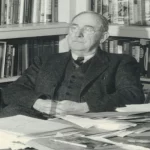When a person or an organization makes a decision, it is rarely a simple, logical process. We do not just look at a list of facts and choose the best option. The systems thinker Sir Geoffrey Vickers developed the concept of the Appreciative System to explain this complex reality.
Vickers, a lawyer and high-level corporate manager, found that human systems are not like machines that simply chase a fixed goal. Instead, they constantly manage relationships and standards. The Appreciative System is the ongoing, cyclical process by which humans make sense of the world, combining what they see with what they value. This concept was a critical bridge that moved systems theory toward dealing with human judgment and perception.
The Core Concept: Appreciation
Vickers argued that our understanding of the world is not based on pure, objective facts. It is based on appreciation. He defined appreciation as a “combined judgement of value and fact” that can never be separated.
Judgments are Inseparable
For Vickers, a fact only becomes relevant if it is noticed and measured against a personal standard or value.
- Judgment of Value: This is what a person cares about. It includes their beliefs, moral standards, and what they think is an acceptable state of affairs. For example, the value might be “The company’s profit margin must not drop below 10%.”
- Judgment of Fact: This is what the person observes. The fact might be “The current profit margin is 8%.”
If a person did not value financial success, the fact that the margin is 8% would be irrelevant and would likely not even be noticed. This process shows that every person filters the constant flow of information based on their existing standards.
The Appreciative System is a set of “readinesses to distinguish some aspects of the situation rather than others.” It is the constant, internal filter that chooses which facts are relevant based on a person’s values and standards. This combined judgement of value and fact is the engine of all human decision-making.
The Appreciative System as a Filter
The Appreciative System is essentially a dynamic, organizing filter that is always at work. It is not just one decision; it is a whole system of interconnected standards.
An organization or an individual develops a “set of readinesses” to focus on certain things and ignore others. This system is highly organized: if one standard changes, it can shift all the related standards and values around it. For example, if a company decides it deeply values public reputation, that single shift in value will suddenly make hundreds of new facts relevant, such as customer reviews, press coverage, and social media trends.
The Focus on Relationships
Vickers also taught that the true purpose of management in human systems is not always to hit a simple, fixed goal. Often, the central purpose is maintaining relationships. The job of a leader is to manage the complex web of relationships and the stability of the organization itself. The appreciative system is what allows managers to assess when a relationship is stable, strained, or in need of correction.
The Appreciative Loop: The Cycle of Sense-Making
The Appreciative System works as a constant feedback loop. It is a process of sense-making over time that allows humans to learn and adapt.
- Perceiving Reality: The system first filters the unending flow of events. It only notices the facts that matter to its existing values and standards.
- Making Judgments: The system then classifies and judges the perceived situation against its internal standards. It determines if the situation is acceptable, dangerous, or requires action.
- Taking Action: This judgment leads to an action or a conscious choice to do nothing. This action is designed to keep key variables and relationships within an acceptable range.
- Standards Change: The results of the action feed back into the system. If the action succeeds or fails, it can subtly modify the person’s values and standards. The system learns what is truly important and adjusts its readiness for the future.
This continuous cycle is what makes the system dynamic. It shows that we are always changing our view of the world based on the outcome of our actions.
Conclusion
Sir Geoffrey Vickers’s Appreciative System is a foundational concept in systems thinking. It proved that human decision-making is an ongoing, cyclical process driven by a personal combination of values and facts. By defining appreciation as an internal filter, Vickers provided a realistic model for how individuals and organizations manage uncertainty and complexity. His work fundamentally influenced the move toward Soft Systems Methodology, proving that to understand a human system, you must first understand the unique way its members choose to see the world.



